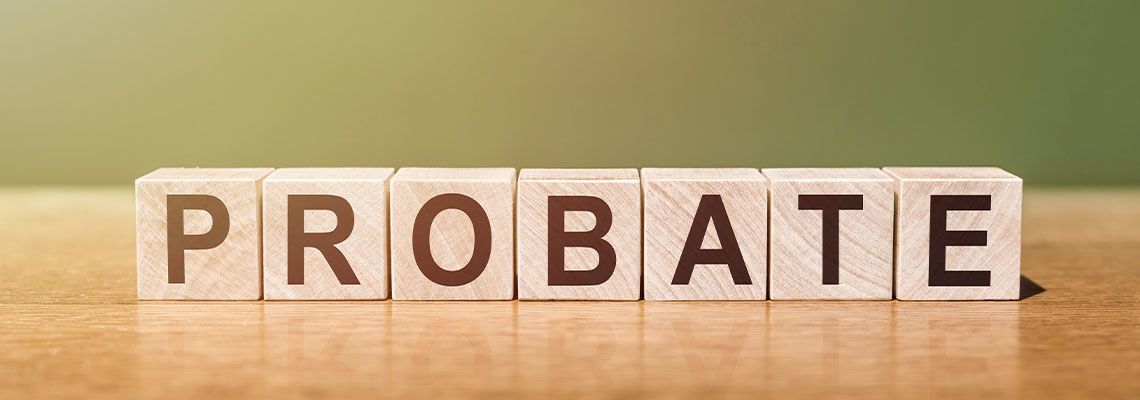
What Happens If You Don’t File Probate?
Probate is the legal process that happens after a person passes away. It is designed to verify the deceased person's will, identify and tally their assets, settle any debts or taxes owed, and distribute the remaining assets to the beneficiaries. Essentially, probate ensures that the departed individual's wishes are respected and provides a legal framework for the transfer of their assets.
However, it's important to note that probate isn't just about asset distribution. It's also about providing closure and ensuring fairness. When a loved one leaves you, the last thing you want is disputes over their estate. That's where probate can help — it's a legally supervised process that aims to ensure the deceased's wishes are fulfilled as accurately as possible. At Russell Manning Attorney, I can guide you through the probate process and the legal options available.
Why Some People Avoid Filing Probate
While probate can play a crucial role in managing the estate of the deceased, some individuals may choose to avoid it due to its perceived drawbacks. The litigation process can be time-consuming and costly, as it often involves court fees, legal costs, and extensive paperwork. Additionally, since probate records are public, some may seek to maintain privacy regarding the deceased's affairs and asset distribution. In cases where the estate is relatively small or consists mainly of jointly held assets, probate may seem unnecessary or overly burdensome to the survivors.
The Consequences of Not Filing Probate
Failing to file for probate when it's required can lead to several legal and financial complications. Here are some specific consequences that could happen:
Assets May Remain Frozen: Without probate, the deceased’s bank accounts and other assets cannot be legally accessed or transferred to their beneficiaries. This may leave necessary assets out of reach when they are most needed.
Difficulty in Transferring Ownership: Real estate and vehicles owned by the deceased will remain in their name, making it legally complex to transfer ownership without the probate process.
Potential Legal Claims: If the estate's debts are not settled properly, creditors may come forward with claims against the estate, which can lead to legal disputes among potential heirs and creditors.
Increased Risk of Family Disputes: Without the structure of probate to enforce the will, disagreements among heirs and beneficiaries are more likely to escalate into contentious disputes.
Tax Consequences: Estates that aren't properly handled through probate may face penalties and interest from unpaid estate taxes that continue to accrue until resolved.
Complications with Intestate Succession: In the absence of a will and probate, state intestacy laws determine asset distribution, which may not align with the deceased’s intended wishes.
It’s crucial for those handling an estate to carefully consider the implications of skipping probate and to consult with a legal professional before making such a decision.
The Role of an Executor
When dealing with probate, it's crucial to understand the role of an executor. This person is appointed by the deceased in their will to manage their estate during the probate process. As an executor, you have many responsibilities like gathering and managing the deceased person's assets, paying off debts and taxes, and distributing the remaining assets to the beneficiaries. You're essentially a fiduciary, which means you have a legal duty to act in the best interests of the estate and its beneficiaries.
Can an Executor Bypass Probate?
There are circumstances where an executor may be able to bypass the probate process, or at least simplify it. These scenarios generally involve the way the deceased structured their assets or the laws of the state where the estate is being settled.
Assets with Named Beneficiaries: Assets such as life insurance policies, retirement accounts, and "transfer-on-death" or "payable-on-death" accounts typically have named beneficiaries and hence can be transferred without going through probate.
Jointly Owned Property: Property held in joint tenancy, common in marital homes, usually passes directly to the surviving co-owner and may not need to go through probate.
Small Estate Affidavit: Some states offer a simplified process for small estates, where an affidavit can be filed to collect the assets without formal probate.
Living Trusts: Assets held in a living trust can be distributed without probate because they are considered separate from the trustee's personal assets at the time of death.
Even in cases where you believe probate can be bypassed, it's essential to seek legal advice. Each state has different rules and thresholds for what constitutes a small estate or whether property can be transferred outside of probate. Consulting with an attorney can help you fulfill your fiduciary duties and adhere to the requisite legal procedures.
How to Legally Avoid Probate
Despite the potential pitfalls, there are legal strategies for bypassing probate. One method is establishing a living trust, which allows assets to be transferred to beneficiaries without going through probate. By placing assets in a trust, you maintain control over them during your lifetime and can specify how they should be distributed after your death. Other methods to avoid probate include joint ownership, beneficiary designations, and gifting assets during your lifetime.
However, it's crucial to consult with an experienced estate planning attorney to determine the best approach based on your circumstances and goals. At Russell Manning Attorney, I can provide guidance on the available legal options and help create a comprehensive estate plan that meets your needs.
Get Professional Guidance
While probate may seem daunting, it serves a critical role in ensuring a deceased person's wishes are carried out. Choosing not to file probate can lead to significant issues. However, there are legal ways to avoid probate, and I'm here to guide you through those options. Remember, it's about finding the best approach for you and your loved ones and providing peace of mind during difficult times.